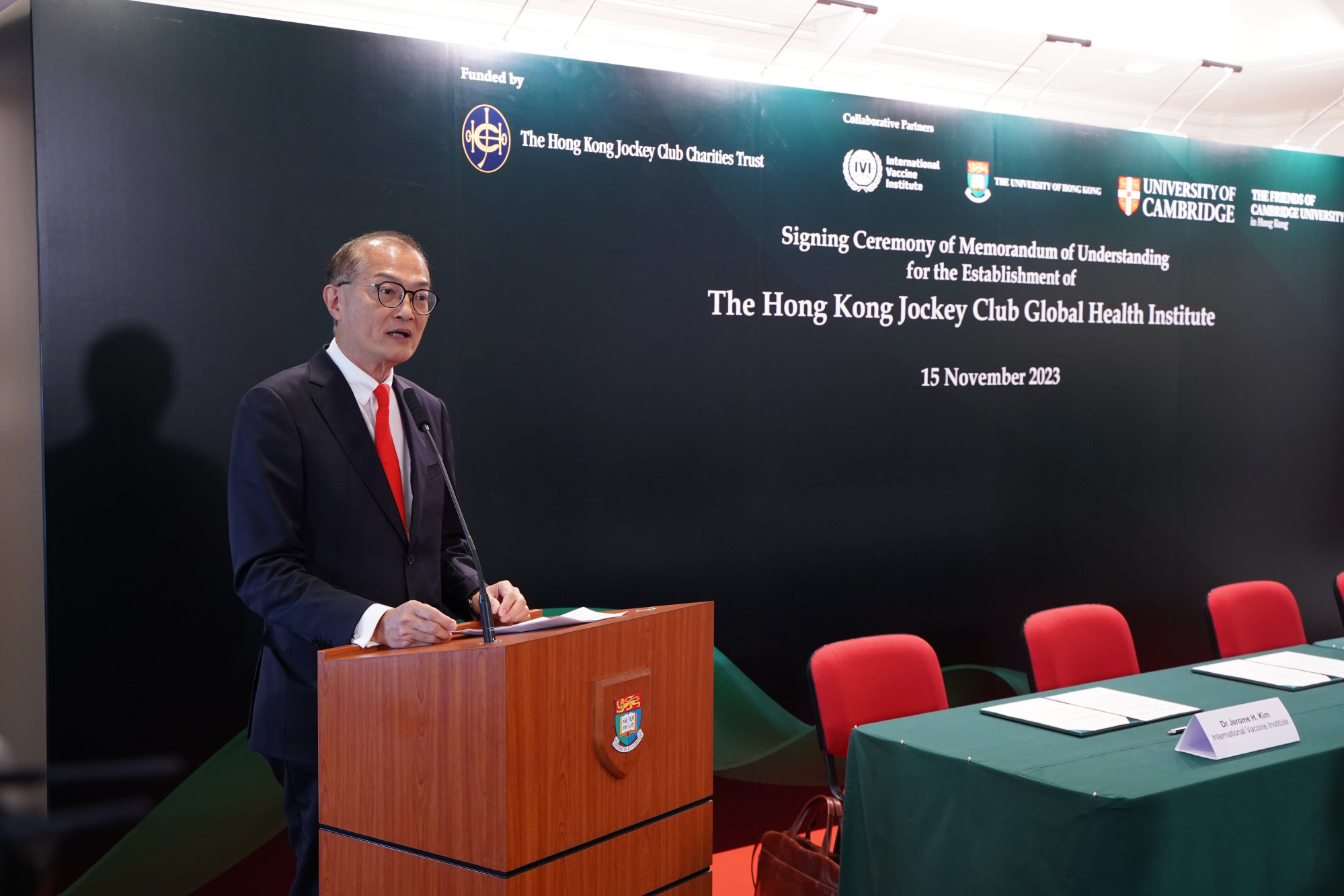
Hong Kong’s plan to be hub for vaccines to combat emerging infectious diseases takes big step forward with two new labs to open next year
- UN’s International Vaccine Institute and Cambridge University will set up labs at University of Hong Kong as part of new Global Health Institute
- New institute expected to be up and running by second quarter of next year to carry out research with international and mainland Chinese scientists
The International Vaccine Institute (IVI) under the United Nations and the University of Cambridge in Britain were expected to set up laboratories at the University of Hong Kong (HKU) as part of the establishment of the Global Health Institute (GHI), a source said.

The new initiative was revealed after the chief executive’s pledge in his policy address last month to transform the city into a regional innovation and biomedical hub.
The GHI will carry out vaccine research in collaboration with international and mainland Chinese scientists after identification of the types of infectious diseases likely to emerge.
“The institute will focus more on the downstream supply chain … it is not practical for the city to spend more than 10 years to develop a new vaccine,” the insider said.
“On top of the local experts, top scientists will be recruited to transform vaccines with the latest translational vaccine technology so that they can be produced in a faster and cheaper way.”

The source said the GHI had also connected with key mainland vaccine laboratories, including with Zhong Nanshan, a veteran Guangzhou respiratory disease expert.
It was also in discussions with the laboratories at IVI and the University of Cambridge on how their scientists could contribute to vaccine development in Hong Kong, another source close to the institute said.
The new laboratories will eventually be housed in a building to be constructed next to HKU’s medical school.
But the university has already reserved some space on the medical school campus to accommodate staff and lab facilities starting from next year.
IVI is an international non-profit organisation set up in Seoul, South Korea in 1997 under the United Nations Development Programme to develop vaccines and promote vaccination for global health.
“Through co-locating laboratories and experts in Hong Kong, GHI will bring translational vaccine technology to Hong Kong and ultimately benefit people in Hong Kong and the Greater Bay Area,” the source said.
The Greater Bay Area, with a total population of more than 86 million, is Beijing’s scheme to integrate Hong Kong, Macau and nine mainland Chinese cities into an economic powerhouse.
The source added the new institute would not produce vaccines and it would be up to the government to identify drug companies and land for production.
Hong Kong was positioned as a global innovation and technology centre under China’s 14th five-year plan. Health authorities have come up with a long-term scheme to set up an independent drug regulatory body to boost the city’s status as a biomedical research hub.
He announced that the Hong Kong Jockey Club would provide HK$3 billion (US$383 million) to support related efforts, including the setting up of the GHI.
A spokesman for the club said more backing, such as support for the authorities to strengthen system-wide preparedness for disease outbreaks and nurturing human resources for the health sector, would be revealed later.
Health minister Lo Chung-mau, speaking as a memorandum of understanding was signed by the Jockey Club, IVI, HKU and Cambridge University on Wednesday, said the institute would foster multidisciplinary research and enable scientists, immunologists, virologists and public health experts to work together seamlessly.
“It will act as a central hub for research, development and translation, ensuring that equitable distribution for life-saving vaccines will reach every corner of the globe, particularly those in underserved and marginalised communities,” he added.
“The Global Health Institute will also serve as a training ground for the next generation of scientists and healthcare professionals.”

